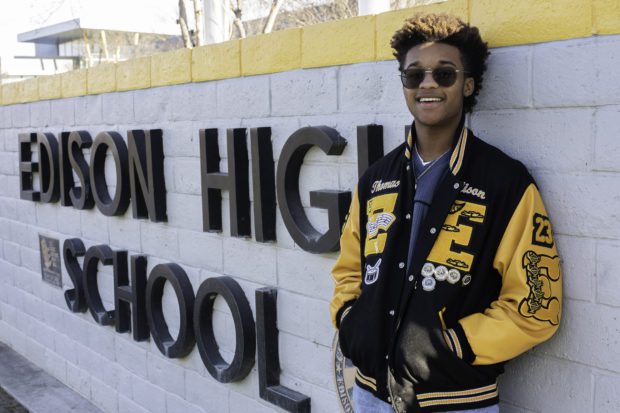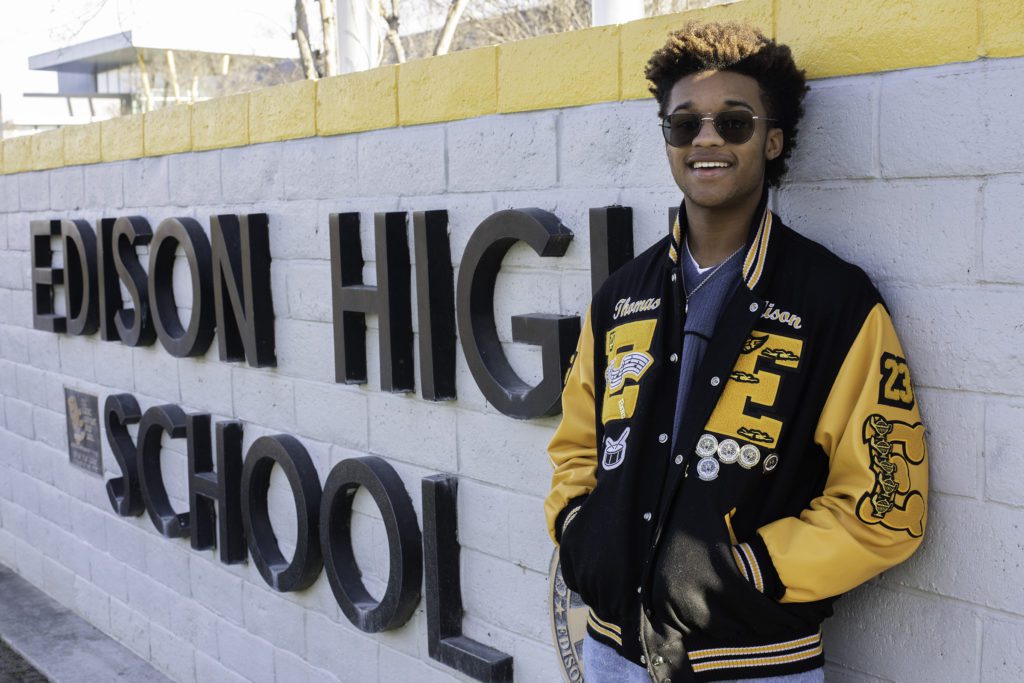

“The American Dream feels very far away from me now,” despaired the woman next to me.
While the call for help drifted before me, the four walls that I sat within remained grounded in southwest Fresno—the home of Edison High School, where I have attended for four years.
When my Black Student Union adviser invited me and a few other students to a listening session focused on recognizing Fresnans struck by poverty, I jumped at the opportunity. I drove to the community center and took my seat among the other Fresnans. The host, former Stockton mayor Michael Tubbs, welcomed everyone to the event. After opening the floor for comment, a flurry of testimonies proceeded.

As the stories unfolded, a common theme soon revealed itself. A weathered lady told the horror story of her life in Spanish. Through a translator, we got a glimpse of the woman’s recent struggles. She related her stories of a white mal-intentioned neighbor who “didn’t want any Mexicans as neighbors” and a system that was designed to oppress her. She described feeling hopeless as she filed for bankruptcy and learned how to live a homeless life on the streets.
Another Fresnan recounted his exhaustive relationship with the City. He couldn’t count the number of trips he had made to City Hall to advocate for supportive policies in our community. His protests for better transportation, industries and opportunities to assist the people of southwest Fresno remained just that. Protests. Protests that rested upon passive ears.
So many of the people in the building felt invisible. The city that they lived in refused to recognize their calls for justice, and many were tired of being treated like an afterthought by their city.
Some people claim that the impoverished are responsible for their situation. That is the furthest assumption from the truth. I couldn’t bear the thought of people thinking that, because I had just heard our community members express the injustices of the system they were trapped in. The whole way home the stories spun through my head until I developed a solution to help the people of southwest Fresno.
I understood that Edison has always been considered “the smart kid” school, so how come its students aren’t supporting their community more? I realized it’s because many of them are like me, transfer students who drive 20 minutes to get to school.
The majority of these students are oblivious to the struggles surrounding them. If they’re driving from north Fresno, they can watch the number of grocery stores decline as the convenience and liquor stores increase. Many students don’t recognize why their surroundings are so different at school from what they are at home.
If students were made to understand that the aftershocks of historical racism still plague the society they live in, I feel as though they would want to do something about it.
That’s why I’m calling for an addition to the Fresno Unified School District curriculum, one that educates students on the disparities of their community. Students must understand that it’s their neighbors and classmates who are hurting. In 2019, an estimated 80% of students at Edison were socioeconomically disadvantaged while 1.2% were homeless.
Through community events such as listening sessions or even school carnivals, students could engage in face-to-face conversations with the people around them.
These would be opportunities for students to understand that southwest Fresno consists of many disadvantaged Black and Hispanic people because of racial redlining. You cannot understand the present without first analyzing the past.
Grasping the current struggles that we face is a good first step but is futile without action. We need students to not only engage, listen and understand our community but also move forward and collaborate on solutions.
These are the students who will grow up to be political leaders, community advocates and societal figureheads. Southwest Fresno needs advocacy and support, and the students of the region have the potential to provide that.
If someone had read me the stories of the session from an article, I would have endured a few fleeting moments of sympathy and gone about my day. It was the impact of hearing the stories from the source in real time that stuck with me long after my drive home.
The public, especially students, need more experiences like that—to face the ugly parts of our society in broad daylight and be forced to reconcile with them.
Students are the key to our success in the mission to eliminate institutional racism. Without them, our future will remain as uncertain as it is now.
